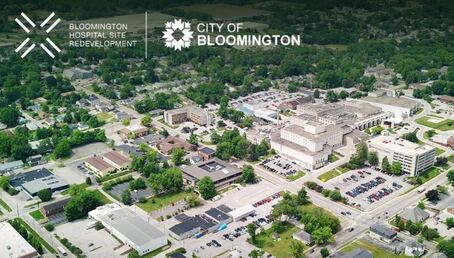 The City of Bloomington is hosting a public forum on Oct. 6 to review a site plan for the redevelopment of the current IU Health Bloomington Hospital area. The event begins at 6 p.m. and will be held online. Residents can participate by registering here, or watch the event on Facebook or CATS. Participants will be asked to take part in three 25-minute workshops featuring interactive discussions about the plan. The workshop topics will be Access + Connections, Open Space, and Land Use + Neighborhood Character. The next public forum will occur in December, when the master planning consultant, Skidmore, Owings & Merrill (SOM), will present a finalized plan. The master planning team is also working with the Hospital Reuse Committee, a group of more than 30 community members who have been involved with the city on this project since 2015. Chamber CEO Erin Predmore serves on that group. Additional information, updates, and input opportunities are available on the project website.
0 Comments
 Scott Robinson at a Dec. 18, 2019 Bloomington Council meeting. Scott Robinson at a Dec. 18, 2019 Bloomington Council meeting. Scott Robinson has been named the new Planning & Transportation Director for the City of Bloomington, a mayoral appointment that is expected to be confirmed at the Bloomington Plan Commission's Oct. 12 meeting. He replaces Terri Porter, who retired on Sept. 25. Robinson has served as assistant director since 2018 and has worked for the City of Bloomington for 18 years. Most recently, he took the lead in developing the city's Unified Development Ordinance and the city's Comprehensive Plan. In his new role, Robinson will receive annual salary of $101,418. The assistant director's position will be posted here in mid-October. Click here for more information about the Planning & Transportation Department. 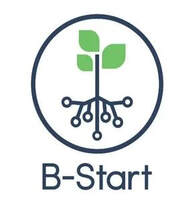 B-Start, a pre-accelerator program to help launch for-profit innovation-driven businesses in Bloomington, is taking applications for its next cohort. B-Start participants are at the earliest stage of their business development and are coached through a 5-month process of mentorship and group activities to build a foundation for accelerating the growth of their startups. Click here for the tentative 2020-21 program schedule. The deadline to apply is Sept. 30 at 5 p.m. Click here to apply. 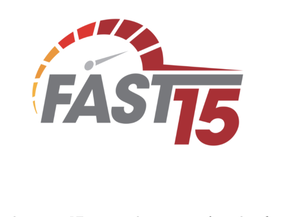 The Dimension Mill is seeking nominations for its annual business awards, the Fast 15. These awards recognize the fastest-growing companies in Bloomington. This year, the Fast 15 also includes the MVP Awards, which recognize Bloomington’s top employees. Eligible companies must meet these criteria:
Click here for more information. The nomination deadline is Oct. 9.  During a 5-hour meeting on Sept. 16, the Bloomington City Council voted down an 0.25% local income tax increase proposed by Mayor John Hamilton. The vote on the 9-member council was four in favor, five opposed. Voting against the proposal were Isabel Piedmont-Smith, Susan Sandberg, Sue Sgambelluri, Jim Sims and Ron Smith. The Chamber also had opposed the increase, and CEO Erin Predmore spoke against it in the public commentary portion of Wednesday's meeting. “A lack of public process makes this tax proposal impossible to support,” she said. The Chamber looks forward to working with City of Bloomington and Monroe County decision-makers, as well as state legislators and the public, to collaboratively address our community's challenges together in the coming months. Two vacancies are open on the 5-member Bloomington Transit board of directors, which oversees the city's public transit system. Both vacancies are appointed by the Bloomington Council, with terms through July 2022 and 2023. Board members are required to attend monthly board meetings, to serve in any officer role as elected by the full board, and to provide oversight for the organization. Monthly compensation is $100. More information about Bloomington Transit is online at BloomingtonTransit.com. 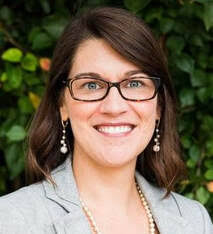 Erin Predmore Erin Predmore The Greater Bloomington Chamber of Commerce is urging the Bloomington Common Council to vote against Mayor John Hamilton’s proposal to increase the local income tax (LIT) by 0.25%. “A lack of public process makes this tax proposal impossible to support,” said Erin Predmore, the Chamber’s President & CEO. “Adding to the community’s tax burden is an important decision and should be guided by a clear community consensus. That work hasn’t happened.” In an online survey of Chamber members taken this week, 73% of respondents opposed the current proposal and an additional 18% opposed it at this time. Only 9% supported the proposal. The Chamber’s concerns about the proposed tax increase include: Lack of public engagement. The mayor proposed this tax increase in mid-July, but there was no subsequent attempt at public engagement until recently. The proposal was not mentioned during the August budget presentations, when it would have been an obvious and relevant point of discussion. Feedback from the community should be incorporated at the start of the process as a way to determine whether a tax is needed and how much is needed, not after a tax increase has been implemented. Lack of a compelling, sustainable plan. The current proposal is a grab bag of projects, including park trails, a composting program, a new transportation demand management job and more. The projects add to the city’s financial burden while lacking a coherent vision for how the LIT investments will be sustained. Before imposing a tax increase – especially one designed to spur economic development – the city needs to ensure a measurable return on investment and a long-term plan for supporting these investments. It is irresponsible to continue a cycle of taking property off the tax rolls, raising taxes and adding to the city’s financial commitments. Lack of collaboration. This proposal harms much-needed collaboration between the city and county, and with state legislators. The Monroe County Council has issued a statement urging the city to postpone this proposal, and we agree. Ignoring county officials risks damaging the important city-county relationship, which is already frayed. Further, city officials need to build stronger relationships with state legislators. Speculation about possible actions during the next legislative session is being used to justify pushing through this tax increase. The Chamber urges leaders of the City of Bloomington to strengthen intergovernmental relationships for the benefit of our community. There’s precedent for a different approach. In 2016, a LIT increase for public safety was passed with broad support for a focused purpose. The current proposal does not reflect that kind of community buy-in. “Businesses and individuals are stressed from the COVID-19 pandemic and face an uncertain future,” Predmore said. “Without a thoughtful, collaborative process and a sustainable plan, we can not support this tax increase and we urge Bloomington councilmembers to vote against it.” 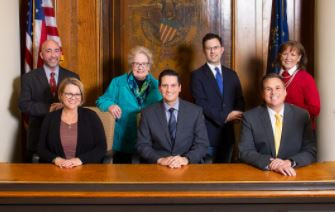 At its Sept. 8 meeting, the Monroe County Council unanimously approved a statement that urges the Bloomington Common Council to postpone a vote on a proposed 0.25% increase to the local income tax. The Bloomington Council is on track to vote on the proposal on Sept. 16 and will hold a meeting on Sept. 9 to discuss it. The statement is written as a letter to Bloomington Council and reads, in part: With the health and welfare of our residents in mind, we, respectfully, ask the Common Council to: 1. Slow the process down. Let us, please, take time to plan and take seriously the fiscal obligations we owe to all Monroe County Residents. There may be a time in the future when a tax increase is needed and the right action to take, but now is not that time. There is no need to fast‐track this legislation. 2. Jointly advocate, with the County, for legislative reform that allows both units to raise revenue, with appropriate input from residents in a way that recognizes the difference in needs and representation among the units. Click here to read the full statement. Click here to watch the County Council's discussion on Sept. 8. Click here to read more background about the tax proposal. 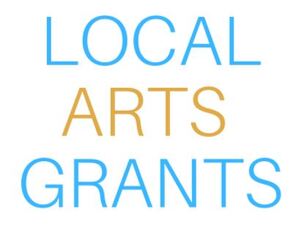 The Bloomington Urban Enterprise Association and the Bloomington Arts Commission are seeking applications for a second round of funding to foster the arts and cultivate cultural experiences in Bloomington. Nonprofit organizations and businesses in the arts and cultural sector can apply for funds starting Friday, September 4 at noon at the following link: https://bloomington.in.gov/arts/grants. Applications will be evaluated according to organizational capacity, community impact, equity and inclusion efforts, artistic quality, and programming needs. Completed applications are due Friday, October 2, at 5 p.m., with awards to be announced and distribution anticipated by late October. As part of the city's Recover Forward initiative, in May 2020 the BUEA and the BAC awarded $80,800 in grant funding to 26 nonprofit organizations whose programming was interrupted or otherwise impacted by the pandemic. NOTE: Mary Morgan, the Chamber's Director of Advocacy & Public Policy, serves on the BUEA board. 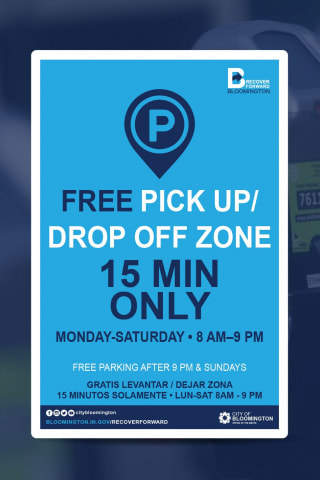 Several changes designed to support downtown businesses will be extended by the City of Bloomington through the end of 2020. These include:
Previously, these initiatives were set to expire on Sept. 30. The PUDO zones and parklets will be extended by the Bloomington Department of Public Works, and the weekend closures of Kirkwood will go before the Bloomington Council at an upcoming meeting in September, according to city staff. Businesses that are interested in the parklet program can apply online here. More information is available on the city's business resource page, or contact Kaisa Goodman at [email protected]. |
Categories
Categories
All
Archives
Archives
May 2024
|
|
Copyright The Greater Bloomington Chamber of Commerce. All Rights Reserved.

 RSS Feed
RSS Feed
